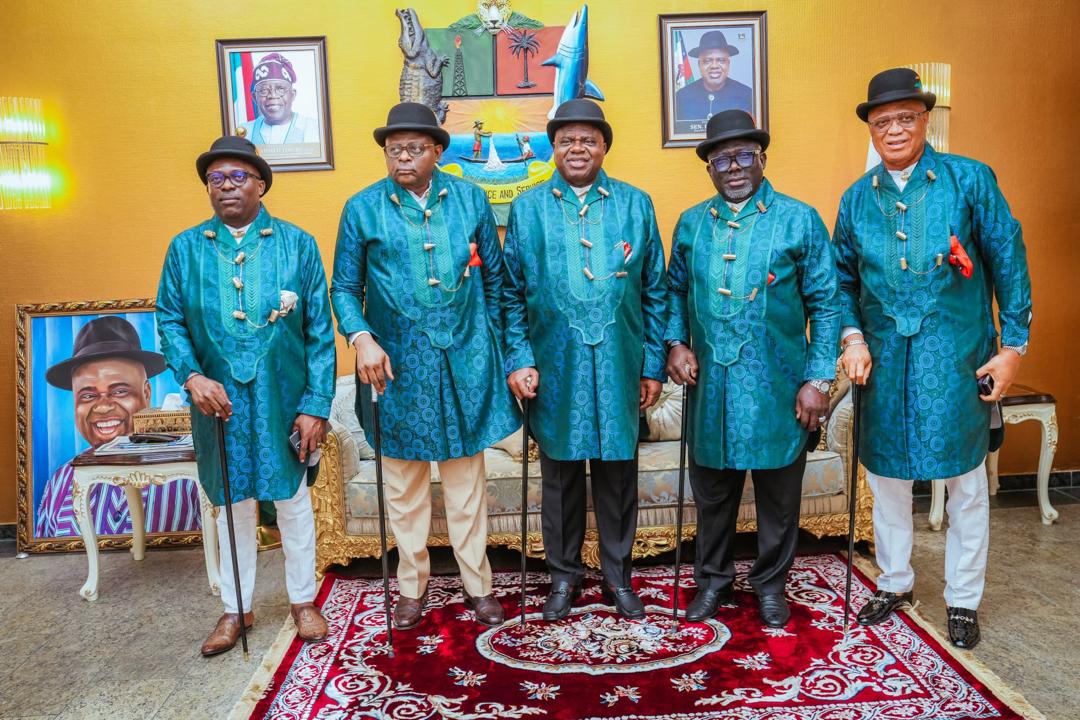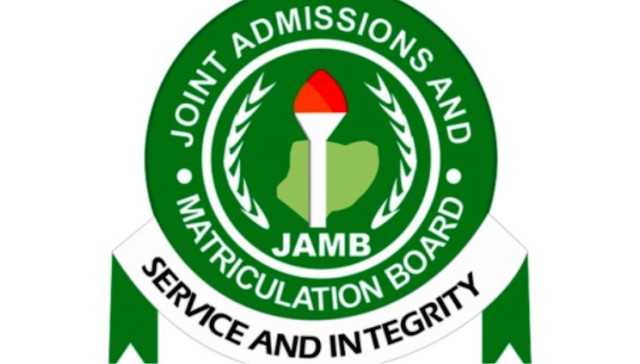News
Oil Exploration And Niger Delta Environment
From the first crude oil export in 1958 to the exploration of its associated products such as gas, the Niger Delta region for the past 60 years has not fared well in terms of sustained development despite being the source of the nation’s means of livelihood.
According to reports from the Central Bank of Nigeria, the region generates between 65% to 75% of all Federal Government’s revenue especially after the end of the Civil War in 1970.
But today, although oil and gas and its associated products still run the nation’s economy, its bye-products and impact on the region are quite devastating on both environment and the socio-economic life of the people of the area. The aquatic life, forests and farmlands have been so degraded that some areas are now devoid of human and animal habitation. Diseases and sickness are now prevalent with some communities are facing great health challenges.
Worried by these hazards, the late renowned playwright, and novelist, Kenuule Saro-Wiwa raised alarm in the late 1980’s about the fast paced degradation of the environment of the Niger Delta region. Although he was eventually killed during the struggle to find an equitable solution to the problem, the fight for a comprehensive study and remediation of the environment continued unabated despite the obstacles placed on would-be environmental activists.
The region is also described as one of the most polluted in the world. It is estimated that while the European Union experienced 10 incidences of oil spills in 40 years, Nigeria recorded 9,343 cases in 10 years which could be described as a deliberate effort to slowly eradicate life from the area through poisoning of the environment.
Following the long agitations and protests from the area, the Federal Government in 2016 finally gave the nod for the implementation of the long awaited United Nations Environment Programme (UNEP) Report beginning from 2016.
In a foreword to the report on the Environmental Assessment of Ogoniland as a case study, UNEP had this to say: “The history of oil exploration and production in Ogoni land is a large complex and often painful one that till date has become seemingly intractable in terms of its resolution and future discussion.”
It also says, “It is also history that has put people and politics and the oil industry at loggerheads rendering a landscape characterised by lack of trust, paralysis and become set against a worsening situation for the communities concerned.”
The situation in Ogoniland is peculiar to the rest of the Niger Delta region.
The discovery of oil in commercial quantities in Oloibiri in present day Bayelsa State was the beginning of the environmental crisis bedeviling the Niger Delta region.
It would be recalled that the agitation for environmental reparation of the Niger Delta region dated back to the colonial times.
The agitations led to the setting up of the Willinks Commission of inquiry into the fears of the minorities. Although the commission amongst others, recommended the granting of special developmental status to the Niger Delta, the recommendation was never implemented by successive Nigerian governments after independence.
The exploration and exploitation of hydrocarbon in the Niger Delta region can be said to be of mixed blessings to the region.
On the one hand, it improved the per capita income of the region through the creation of middle and high income earners. But on the other hand, it has led to series of environmental pollutions, thereby depriving communities in the region of their sources of livelihood.
This situation has led to series of crisis in the region such as the Ogoni crisis of 1990 to 1993, the Kaiama Declaration which led to the creation of the Ijaw Youth Council (IYC), the crisis in Umuechem in Etche Local Government Area of Rivers State and others.
Similarly, the development of artisanal refineries in the Niger Delta has also been blamed for contributing to the recent acid rain and black soot in the environment.
Although the Nigerian authorities may have taken some measures to ameliorate the sufferings caused by oil explorations in the region, through the creation of the Federal Environmental Protection Agency (FEPA) which metamorphosed into Federal Ministry of Environment, the creation of the Niger Delta Development Commission (NDDC); inclusion of derivation into the Constitution and the creation of the Ministry of Niger Delta Affairs have not been able to provide the much-needed succour to the people of the Niger Delta as the problems still persist.
Meanwhile, experts have attributed the high rate of poverty in the Niger Delta to the environmental degradation of the region. At a recent Pan Niger Delta Forum (PANDEF) meeting in Uyo, the Akwa Ibom State capital, Ambassador Nkoyo Toyo shared a documentary of the current situation in the Niger Delta, adding that the region has remained backward despite its huge economic contributions to the Nigerian nation.
Ambassador Toyo who was secretary to the Technical Committee on the Niger Delta during the Umaru Musa Yar’Adua administration said, “it is frustrating to know that the context has not changed as these challenges still stare the region in the face.
“The Niger Delta is still very much degraded as issues such as the following are still debated upon: gas flaring, abject poverty, militancy, crude oil theft, unemployment, cultism and organised crime, poor state of infrastructure and underdevelopment,” she said.
She also said; “apart from lack of opportunities in the region, there is also the breakdown of law and order in the communities.
“Communities often fight over who gets what when development opportunities arise as seen in some communities in Ogoni with regards to the clean-up,” adding that such fight can scare investors away and the region will continue to suffer underdevelopment.
Also in its policy brief note on insecurity in Rivers State, the Niger Delta Dialogue Secretariat says, “there is an environmental dimension to insecurity in Rivers State. For several years now, Port Harcourt and its environs have been covered by soot.
“This is as a result of increased artisanal refining of crude oil and other forms of pollution in the state.
“These pollution-inducing activities from both illegal artisanal and legal oil production has increased environmental insecurity in Rivers State.
“This has negatively impacted on the quality of life in Rivers State,” it said.
Also speaking on the issue, a civil society activist, Ambassador Christy Iwezor said the Nigerian nation has not done enough for the Niger Delta.
She said 60 years down the lane, some oil producing communities have no water to drink and cited the example of some communities in ogoniland in which sources of water have been polluted.
Also speaking, another civil rights activist, Prince William Chinwo stressed the need for a policy that will incorporate the polluters pay principle into the Nigerian law.
According to him, if multinational companies are fined for pollution, they will be more careful in their operations.
He also blamed environmental problems on sanitary conducts.
“The problems of environmental degradation in Nigerian is caused by poor sanitary conduct of Nigerians and inefficient use of local government council workers on environmental sanitation.”
According to him, local government councils must also wakeup to their responsibilities of ensuring improved level of hygiene in their various communities.
The question is after 60 years of independence, have we really made any meaningful progress in the Niger Delta compared to similar environments across the globe where oil and gas are the mainstay of their economy. It would be noted that the gulf countries where oil and gas are the mainstay of their economy have gone far ahead in terms of environmental remediation.
The 60 years anniversary should provide the opportunity for the country to further look into the Niger Delta issues.
News
Let’s Approach Regional Development Issues Differently – Fubara …As S’South Govs Host Fubara To 50th Birthday Celebration

Rivers State Governor, Sir Siminalayi Fubara, has sued for a change in the current approach adopted by South South Governors in their pursuit to achieve holistic regional development and economic prosperity.
The governor insisted on de-emphasis in vested individuals’ political interests while looking at the bigger picture of achieving enduring regional integration that will strengthen unity of purpose to change the trajectory of development in the region.
Fubara made the appeal during the meeting of Governors of South-South States, under the auspices of BRACED Commission, at the Bayelsa State Government House in Yanagoa on Tuesday.
This was contained in a statement by the Chief Press Secretary to the Governor, Nelson Chukwudi.
BRACED is an acronym for Bayelsa, Rivers, Akwa Ibom, Cross River, Edo and Delta.
He said: “I want to appeal that if we have to succeed in this drive, we need to keep our political differences aside and understand that the struggle, as at today, is for posterity, for the development of our region.
“It is really sad that in Niger Delta that is the economic base of this country, the construction of a road that you tagged ‘East-West Road’ could be an issue, that we need to beg, protest, and complain to get it fixed. I don’t think it is proper.”
Governor Fubara stated that it is not that the federal authorities do not understand that Niger Delta needs the road but quickly added that they have seen that even the people of the region do not take themselves seriously.
The governor said the moment Niger Delta people stopped playing to the gallery, and place value on themselves, outsiders will have no option than to accord the region and its people due regard.
Fubara said: “On my part, I want to say this: This is not the first time we are meeting. For me, I followed the course of the region meeting in a forum that we tagged “BRACED Commission.”
“BRACED Commission is also one of the bodies that was constituted at that time to support and work out development strategies for this region. But what I am seeing today is just limiting this meeting to only BRACED COMMISSION.
“We need to widen the scope where other leaders of the region should be part of the discussion of the development of the region, and I think this is the direction that will help the region.”
Reading the Communique of the meeting, the new Chairman of the Forum of Governors of South-South States, and Governor of Bayelsa State, Senator Douye Diri, said they support the Federal Government Tax Reform Bills, and urged President Bola Tinubu to extend the Value Added Tax (VAT) sharing percentages to oil and gas derivation.
He stated the Forum’s request to the Federal Government to urge relevant stakeholders and agencies to extend remediation of polluted environment ongoing in Ogoni land to other impacted communities and States in the region.
Governor Diri also said that the Forum resolved to establish a structural regional security network to enhance safety and security, foster stable Niger Delta region conducive for economic growth and prosperity.
Highlight of the event was the hosting of Governor Fubara to a surprise 50th Birthday celebration by the Governors of South-South States at the Government House in Yenagoa.
News
Fubara Lauds Tinubu For Setting Up Education Load Fund … Vows To Ensure Rivers Benefit Maximally From Scheme

The Rivers State Government has applauded President Ahmed Bola Tinubu for conceiving the idea of setting up the Nigeria Education Loan Fund (NELFUND) which has opened up opportunities for youths to acquire tertiary education irrespective of their financial status.
Rivers State Governor, Sir Siminalayi Fubara, gave the commendation while playing host to a delegation from NELFUND who came on an advocacy visit to the Government House in Port Harcourt on Tuesday.
Represented by his deputy, Prof. Ngozi Nma Odu, Governor Fubara said in developed countries it is common for people to go through school with loans which they sometimes pay all throughout their lives, noting that “for us, it is more accessible and more friendly because you would be required to pay back the loan two years after your National Youth Service.
“It is a win-win situation; it is a situation where the youths in Nigeria should not say because my parents are poor or passed away I cannot improve on my educational growth. This offers them a golden opportunity and I am glad you came for this advocacy.”
The governor urged NELFUND to intensify its advocacy to let the people know how they can benefit from it, adding that it is more important when talking about vocational institutions.
“If you look at the developed countries it is people that went to the vocational schools that make so much money, because it is pricey to get somebody to do anything, we need to instil this into our people, our youths, because people sometimes tend to look down on people that went to vocational schools, it should not be,” he said.
Fubara expressed delight with the NELFUND programme and assured that the State Government would do whatever it can to ensure Rivers State benefits maximally from the scheme.
In his remarks, the Managing Director and Chief Executive of NELFUND, Dr. Akintunde Sawyer, informed the governor that they were in Rivers State to seek the support of the State Government towards the loan, stressing that President Tinubu has directed them to ensure no Nigerian student who has the ability and desire to get educated at tertiary level is denied the opportunity due to lack of funding.
He explained that the scheme provides interest-free loans to students who apply, adding that these loans are not repayable until two years after their Youth Service when they must have gotten a job.
News
UK Appoints British-Nigerian As Trade Envoy To Nigeria

A British-Nigerian politician, Florence Eshalomi, has been appointed as the United Kingdom’s trade envoy to Nigeria.
Her appointment makes Eshalomi the second Nigerian to hold the position.
Confirming her appointment on X on Tuesday, she wrote: “It is an honour to have been appointed as the United Kingdom’s Trade Envoy to Nigeria.
“I’m looking forward to building on my close ties with Nigeria to promote a strong and flourishing economic relationship between our two great nations.
“I am looking forward to strengthening the UK’s relationship with Nigeria to explore shared growth and opportunities for both countries.”
Announcing the appointment in a statement on Tuesday, Jonathan Reynolds, the UK’s Business and Trade Secretary, said the decision was aimed at attracting investment into the UK and boosting economic growth.
“I’ve launched a new team of trade envoys who will use their experience, expertise, and knowledge to unlock new markets around the world for British businesses, attract investment into the UK, and ultimately drive economic growth,” Reynolds said.
Eshalomi, 44, is an MP representing the Vauxhall and Camberwell Green constituency.
She holds a Bachelor of Arts (Hons) in Political and International Studies with Law from Middlesex University.
-
Business3 days ago
Nigeria Wants Higher Quota From OPEC
-
News20 hours ago
#EndBadGovernance Protesters Storm Court, Demand Sowore’s Release
-
Nation17 hours ago
Plane Crash-Lands, Tyre Bursts Upon Landing In Kano
-
Business3 days ago
WEF: We Have Over a Billion Barrels of Oil Reserves … Tinubu
-
News20 hours ago
Border dispute: UN lauds Nigeria, Cameroon for implementing ICJ’s ruling
-
Business16 hours ago
S’Korean Airplane Catches Fire … 176 Passengers evacuate
-
Nation3 days ago
Soldiers Destroy 13 Illegal Refineries, Arrest 15 Oil Thieves
-

 News22 hours ago
News22 hours agoViolation: JAMB Suspends Law Programme In 8 Institutions

